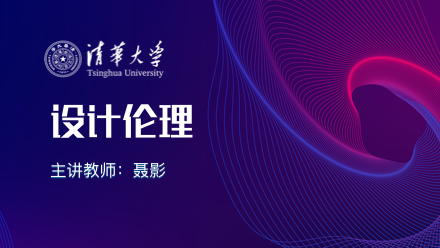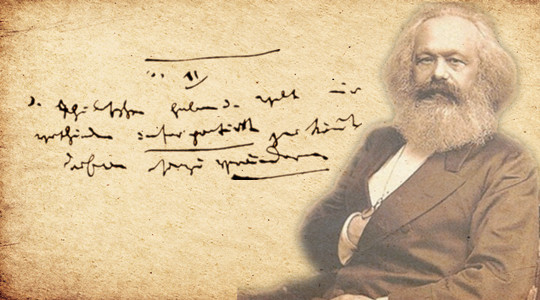
当前课程知识点:心理学之旅 > 第4章 意识 > 第12讲 解决信息混乱—意识的功能 > 第12讲 解决信息混乱—意识的功能
从现在开始我们再讲意识
From now on, we will talk about consciousness
冯特的心理学研究的是意识
The psychology of Wundt is about consciousness
詹姆斯的心理学研究的也是意识
and the psychology of James is also about consciousness
从某种意义上来说
In a sense
心理学的终极目的就是研究意识的本质
the ultimate goal of psychology is to study the nature of consciousness
那么 意识这个概念到底是什么意思呢
So what does the concept of consciousness mean?
其实意识在不同的情境中有不同的内涵
In fact, consciousness has different connotations in different situations
意识有三种不同的内涵
Consciousness has three different connotations
第一 意识类似于我们所说的心理
First, consciousness is similar to what we call mind
冯特 铁钦纳的研究对象都是意识
The research objects of Wundt and Titchener were consciousness
他们使用内省的方法
They used the method of introspection
研究意识内容的结构
to explore the structure of consciousness content
而詹姆斯则把意识看作不断流动
James, on the other hand, regarded consciousness as a constantly flowing
不断变化的意识流
and changing stream of consciousness
詹姆斯在1892年出版的教科书《心理学》的第一页就提出
James put forward on the first page of Psychology, a textbook published in 1892
心理学是“对意识状态的解释和描述”
that psychology was "the explanation and description of the state of consciousness"
第二种内涵 意识指的是一种心理状态
Second, consciousness refers to a mental state
从无意识到意识再到注意这样一个连续体
a continuum from unconsciousness to consciousness to attention
昏迷了一个星期 恢复了意识
After a week of coma, consciousness is regained
就是这种内涵
That's what it means
第三内涵 意识是一种觉知
Third, consciousness is a kind of awareness
也就是我们觉察到了某种现象或者事物
that is we are aware of a certain phenomenon or thing
比如我说
For example, I said
我意识到我犯了一个错误
I am conscious that I had made a mistake
就是说 我觉察到我犯了一个错误
That is to say, I am aware that I have made a mistake
在我们意识清醒的时候
When we are conscious
能觉知到那个时刻的
we can realize the perception
知觉 思维 情感 意向和欲望等等
thinking, emotion, intention and desire at that moment
也就是你的注意力所指向的所有心理活动
which are the mental activities that your attention points to
我们能意识到我们正在做的一件事情
We are conscious that we are doing something
我们有时候也能意识到
and sometimes we are also conscious that
对于我们正在做的事情
to what we are doing
别人正在观察 评价和回应
others are observing, evaluating and responding
有心理学家和一位科萨科夫综合征病人握手
A psychologist shook hands with a patient with Korsakov syndrome
手指间藏了一根针 扎了这个病人一下
hid a needle between his fingers and pricked the patient
下次见面的时候
The next time they met
病人不认识心理学家
the patient didn't know the psychologist
但是 他莫名其妙地不愿意和这位心理学家握手
but somehow didn't want to shake hands with him
病人觉得医生很危险
The patient thought the doctor was dangerous
但他并没有觉察到他觉得医生很危险
but he didn't realize that he thought the doctor was dangerous
也没有觉察到他是因为觉得医生危险
and he didn't realize that because he thought the doctor was dangerous
所以才不愿意跟医生握手
So he didn't want to shake hands with the doctor
当我们无法用意识来解释我们的行为的时候
If we can't explain our behavior with consciousness
我们就会知道有“无意识”这回事存在
we will know that there is "unconsciousness"
弗洛伊德最早提出了有关无意识或潜意识的系统理论
Freud first put forward the theory of unconsciousness or subconsciousness
他认为我们的无意识里面存在的是原始的欲望
He thought that there were primitive desires in our unconsciousness
这些欲望不被社会道德和我们的良心所接受
These desires were not accepted by social morality and our conscience
所以被排除在我们的意识之外
so they were excluded from consciousness
而现在的心理学家
When the psychologists today
在使用无意识这个概念的时候
use the concept of unconsciousness
与弗洛伊德的
the connotation of unconsciousness is different
无意识概念并不相同
from Freud's concept of unconsciousness
那么 什么是无意识呢
So what is unconsciousness?
我们在这里是从“意识是一种觉知”
We are here to talk about unconsciousness
的意义上来谈无意识的
in the sense that consciousness is a kind of awareness
所以无意识就是个体不曾觉察到的
Therefore, unconsciousness is a mental activity and process
心理活动和过程
that individuals do not realize
它包括多种形式
which includes many forms
第一种形式是自动化的行为
The first form is automatic behavior
比如 我们刚刚学会开车的时候
For example, when we first learn to drive
会时刻关注周围的环境和我们的动作
we always pay attention to the surrounding environment and our actions
这时候我们对于开车是有意识的
At this time, we are conscious of driving
但是 当我们开熟了以后
However, when we are familiar with driving
我们就不再需要专门关注
we no longer need to pay special attention to
环境和我们的动作
the environment and our actions
也就是能自动化地驾驶汽车了
that is we can drive the car automatically
无意识的第二种形式是
The second form of unconsciousness is
日常生活中的无意识行为
the unconscious behavior in daily life
比如 我们经常挠头发
For example, although we often scratch our scalp
舔嘴唇 晃腿等等
lick our lips, shake our legs and so on
但我们并没有意识到我们正在做这些事情
we don't realize that we are doing these things
第三种无意识是直觉
The third kind of unconsciousness is intuition
我们经常说 我直觉着这里有危险
We often say that my intuition is that there is danger here
第六感告诉我这里有危险
and the sixth sense tells me that there is danger here
这时候 我们并不知道为什么产生了这里有危险这个想法
At this time, we don't know why the idea that there's a danger arises
其实在这个过程中
In fact, in this process
我们的脑子里已经发生了无意识的推理和判断
unconscious reasoning and judgment have taken place in our minds
下面我们讨论意识的功能
Let's discuss the function of consciousness
首先需要再次说明
First of all, it needs to be explained again that
一切心理活动都是进化的结果
all mental activities are the result of evolution
人类意识当然也不例外
and human consciousness is no exception
人类意识是在进化过程中
In the process of evolution, human consciousness comes into being
通过与敌对力量的竞争而产生的
through competition with hostile forces
我们的祖先在进化过程中
In the process of evolution
为了捕猎或者抵御敌人
in order to hunt or resist enemies
逐渐开始进行群体合作
our ancestors gradually began to cooperate with each other in groups
从而进化成一种社会性动物
thus evolving into social animals
并最终进化出人类复杂的意识活动
and finally complex human consciousness activities were evolved
在社会群体中生活
Living in a social group
就需要与其他人合作和竞争
requires cooperation and competition with others
自然选择过程使那些能思考
The natural selection process enables individuals who can think
计划和想象的个体生存下来
plan and imagine to survive
这样 意识功能被进化出来
In this way, the function of consciousness has been evolved
帮助我们人类生存
to help us survive
意识的功能在于
The function of consciousness is
帮助个体理解环境
to help individuals understand the environment
并利用这些信息
and use this information
计划最适当和有效的行动
to plan the most appropriate and effective actions
从而有利于我们人类的生存
so as to benefit our human survival
周围的环境提供了大量信息
The surrounding environment provides a lot of information
这些混乱的信息从四面八方向我们冲过来
These chaotic information rush us from all directions
我们的意识如何应对呢
How can our consciousness deal with it?
我们的意识通过三种方式来解决信息混乱的问题
Our consciousness solves the problem of information confusion in three ways
首先 意识能够限制我们觉察和注意的范围
First of all, consciousness can limit the scope of our awareness and attention
减少刺激的输入
and reduce the input of stimulus
比如 当我们出去散步的时候
For example, when we go out for a walk
我们能看到树在发芽
we can see trees sprouting
鸟在歌唱 孩子们在玩耍
birds singing and children playing
突然 一只狗大叫着向我们冲过来
All of a sudden, a dog come shouting at us
这时 我们的意识活动会做什么呢
At this time, what will our conscious activities do?
意识会立刻把我们的心理活动指向这只狗
Consciousness will immediately direct our mental activities to the dog
而忽略那些无关的信息
and ignore irrelevant information
这种限制有利于我们根据经验
This restriction can help us make the most appropriate decisions
做出最适当的决策
based on experience
意识的第二个功能是选择性地存储信息
The second function of consciousness is to selectively store information
在我们有意识地注意的信息中
Not all of the information we consciously pay attention to
也不是所有的信息都与要做的事情有关
is related to what we want to do
比如 当我们遇到那只冲我们大叫的狗
For example, when we meet the dog yelling at us
我们可能会停下来考虑
we may stop and think about it
我要记住 下次不要再从这儿走了
We want to remember that we will not come here next time
也就是说 由于意识的存在
That is to say, due to the existence of consciousness
我们就可以选择存储那些对将来有用的信息
we can choose to store the information that is useful for the future
而不需要存储那些无关的信息
rather than the irrelevant information
意识的第三个功能是让你停下来
The third function of consciousness is to let you stop
基于过去的经验
based on past experience
对当前的任务提出其他可能的替代方案
to propose other possible alternatives to the current task
或者想象各种可能的结果
or to imagine various possible results
通过这种意识活动
Using this kind of conscious activity
我们就有可能压抑那些
we can suppress those desires
与道德伦理和现实相冲突的愿望
which conflict with moral ethics and reality
并对生活中的需求做出灵活的 恰当的反应
and make flexible and appropriate response to the needs of life
比如 假设你是一辆电车的司机
For example, suppose you are the driver of a trolley
电车拐过一道弯以后
When the trolley turns a corner
突然看到有五个铁路工人出现在你的视线内
suddenly five railway workers appear in your sight
他们正在维修铁轨
They are repairing the track
你想停下来 但是刹车坏了
You want to stop, but the brake is broken
现在 你突然发现铁轨有一个分岔
Now, all of a sudden, you find that there is a fork in the track
你可以把电车开向那边
You can drive the trolley to the other side
这样就可以救那五个工人了
so that you can save the five workers
但不幸的是 那条铁轨上刚好也有一个铁路工人
Unfortunately, there is also a railway worker on that track
你把电车开过去就会把他给杀了
If you keep driving the trolley, you will kill him
你会怎么做呢
What would you do?
当我们遇到这样的问题
When we encounter such a problem
第一反应可能是一定要拐过去
the first reaction may be to turn to the other side
为了救那五个人
In order to save those five people
牺牲一个人是值得的
it is worthwhile to sacrifice one person
但是 如果允许你认真思考一下
However, if you are allowed to think seriously
也就是让意识主动参与你的思考
that is to say, let consciousness participate in thinking actively
也许答案会发生变化
maybe the answer will change
你可能会因为意识的参与
and you may think from more dimensions
而思考更多的维度
because of the participation of consciousness
信息加工认知心理学家把我们
Modern cognitive psychologists of information processing regard
思考活动看作是信息加工
our thinking activities as information processing
并根据意识的参与程度
according to the participation degree of consciousness
把信息加工活动分成
divide information processing activities into
自动加工和控制加工
automatic processing and controlled processing
著名心理学家丹尼尔 卡内曼
Daniel Kahneman, a famous psychologist
对自动加工和控制加工
had conducted a lot of research on
进行了很多研究
automatic processing and controlled processing
他在2002年获得了诺贝尔经济学奖
He won the Nobel Prize in economics in 2002
在《思考:快与慢》这本著作中
In his book Thinking, Fast and Slow
他列举了大量研究
he cited a large number of studies
表明
indicating that
在进行判断 决策等认知活动中
in cognitive activities such as judgment and decision-making
意识的参与和不参与
whether consciousness participates or not
会产生巨大的差异
will generate great difference
比如 现在请你快速回答一个简单的数学问题
For example, now please answer a simple math question quickly
球拍和球共1.1美元
the racket and the ball are $1.1 in total
其中球拍比球贵1美元
of which the racket is $1 more expensive than the ball
请问球多少钱
How much is the ball?
如果快速回答
If asked to answer quickly
很多人脱口而出 球是0.1美元
a lot of people blurted out that the ball is $0.1
这个答案其实是错的
The answer is wrong
这道简单的题目之所以与众不同
The reason why this simple question is different
是因为它能引出0.1美元这个直觉性的
is that it can lead to the intuitive
但却是错误的答案
but wrong answer of $0.1
如果球是0.1美元
If the ball is $0.1
球拍比球贵1美元
and the racket is $1 more expensive than the ball
那么球拍应该是1.1美元
then the racket should be $1.1
球拍和球就应该是1.2美元
and the total price should be $1.2
显然这是错的
It is obviously wrong
而正确答案是0.05美元
The correct answer is $0.05
当我们意识的参与程度不高
When the participation of consciousness is not high
我们就很容易得出错误的结论
we can easily draw wrong conclusions
好 今天的课就讲完了
OK, that’s all for today
现在我们回顾一下主要内容
Now let's review the main content
今天我们讲了意识的概念
Today, we talked about the concept of consciousness
提出意识有三个方面的内涵
Consciousness has three connotations
分别是 意识就等于心理
consciousness is equal to mind
意识是一种心理状态
consciousness is a mental state
意识是一种觉知
consciousness is a kind of awareness
我们主要关注意识是一种觉知
and we mainly focus on that consciousness is a kind of awareness
我们还讲了意识的功能
We also talked about the function of consciousness
提出意识可以通过
and proposed that consciousness could be conducive to human survival
限制我们觉察和注意的范围
by limiting the scope of our awareness and attention
选择性地存储信息
selectively storing information
选择替代的问题解决方案 从而有利于人类的生存
and selecting alternative problem-solving solutions
下次课我们将会介绍我们睡眠的规律
Next time we will introduce the rules of our sleep
好 下次再见
OK, See you next time
-第2讲 理性之光—心理学是一门科学
-第3讲 寻找事实—心理学的研究方法
-第1章 作业
-第4讲 捷足先登—冯特创立心理学
-第5讲 心灵深处—弗洛伊德的精神分析理论
-第6讲 横空出世—华生与行为主义
-第7讲 融合与发展—心理学的新趋势
-第2章 作业
-第8讲 认知的第一步—感觉及其规律
-第9讲 获取信息—感觉的功能
-第10讲 超越元素—知觉的特性
-第11讲 感知三维世界—深度知觉
-第3章 作业
-第12讲 解决信息混乱—意识的功能
-第13讲 并不平静—睡眠
-第14讲 异常状态—梦、催眠与冥想
-第4章 作业
-第15讲 行为的变化—什么是学习?
-第16讲 建立联结—经典条件作用
-第17讲 行为的塑造—操作条件作用
-第18讲 不必参与的学习—观察学习
-第5章 作业
-第19讲 经验的积累—什么是记忆?
-第20讲 永不消逝的信息—长时记忆
-第21讲 非故意的谎言—记忆重构
-第22讲 转瞬即逝—短时记忆和感觉记忆
-第6章 作业
-第23讲 人类的荣耀—语言
-第24讲 策略与定式—问题解决
-第25讲 并非总是理性—推理与判断
-第7章 作业
-第26讲 行为的动力—动机及其来源
-第27讲 吃还是不吃?—饮食的生理与心理
-第28讲 追求成功的动力—成就动机
-第8章 作业
-第29讲 生命的色彩—情绪及其功能
-第30讲 生命色彩的解读—情绪理论
-第31讲 情绪双刃剑—压力
-第32讲 改变自己—压力应对
-第33讲 创造灿烂人生—幸福有方法
-第9章 作业
-第34讲 你有多聪明?—智力及其测量
-第35讲 因素及其超越—智力理论
-第36讲 遗传、教育、文化—智力的族群差异
-第10章 作业
-第37讲 千人千面—人格的概念和特征
-第38讲 描述差异—类型说与特质说
-第39讲 了解人格—人格测验.
-第40讲 膨胀的自我—自尊运动
-第11章 作业
-期末考试





